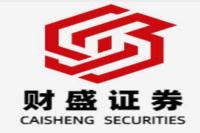Stellantis Appoints Former Rivian Executive Tim Fallon to Lead North American Manufacturing: A Strategic Move for the Auto Giant?
Meta Description: Stellantis, the automotive giant formed by the merger of Fiat Chrysler Automobiles and PSA Group, has appointed Tim Fallon, a former executive at electric vehicle startup Rivian, to lead its North American manufacturing operations. This move underscores Stellantis' commitment to electrifying its lineup and competing in the rapidly evolving EV market.
The automotive landscape is shifting, and Stellantis, a global powerhouse with a rich history, is in the midst of a monumental transformation. The company, formed from the historic merger of Fiat Chrysler Automobiles and PSA Group, is making bold moves to secure its place in the future of mobility, and its recent appointment of Tim Fallon, a veteran of the burgeoning electric vehicle (EV) scene, as the head of its North American manufacturing operations speaks volumes about its strategic direction.
Fallon, who previously served as the chief manufacturing officer at Rivian, a leading EV startup, brings a wealth of experience in building and scaling EV production. His expertise in navigating the complex and evolving landscape of EV manufacturing will be invaluable as Stellantis accelerates its efforts to electrify its portfolio and compete head-on with established EV players like Tesla and emerging startups like Lucid Motors.
This strategic appointment signals Stellantis' serious commitment to the North American EV market, a region poised for explosive growth. The company is investing heavily in its EV infrastructure and is developing a robust lineup of electric vehicles across its various brands. Fallon's leadership will be crucial in ensuring that Stellantis can meet the growing demand for EVs in the region.
Fallon's track record at Rivian, where he played a key role in establishing a state-of-the-art manufacturing facility in Illinois, speaks to his ability to execute complex manufacturing projects. He will be tasked with overseeing the production of various EV models across Stellantis' North American plants, including the highly anticipated Ram 1500 REV, a full-size electric pickup truck that aims to challenge the dominance of the Ford F-150 Lightning and the Tesla Cybertruck.
This move underscores the growing importance of experienced EV professionals in the traditional automotive industry. As legacy automakers race to catch up with EV startups, they are increasingly seeking out talent with proven expertise in the rapidly evolving field of electric vehicle manufacturing.
Fallon's appointment signifies Stellantis' commitment to innovation and its willingness to embrace the future of mobility. His experience in the EV space will be instrumental in helping the company achieve its ambitions in the rapidly evolving EV market.
Tim Fallon: A Veteran of the EV Revolution
Tim Fallon is not just another automotive executive; he's a true veteran of the EV revolution. His career at Rivian, a company at the forefront of the EV movement, provided him with a unique understanding of the challenges and opportunities associated with building and scaling EV production.
Fallon's journey at Rivian began in 2019, just as the company was preparing to launch its first vehicle. He joined as the vice president of manufacturing, quickly rising through the ranks to become the chief manufacturing officer. In this pivotal role, he was responsible for overseeing the development and operation of Rivian's state-of-the-art manufacturing facility in Normal, Illinois.
Under Fallon's leadership, Rivian's manufacturing operation achieved remarkable milestones. He spearheaded the complex task of setting up a new factory from the ground up, ensuring that it was equipped with the latest technology and automation to produce high-quality EVs at scale. His ability to manage a complex project with multiple stakeholders and tight deadlines was instrumental in Rivian's successful launch.
Fallon's experience at Rivian goes beyond simply setting up a factory; he played a crucial role in shaping the company's manufacturing philosophy. He championed the adoption of innovative technologies and processes that prioritized sustainability and efficiency. His commitment to lean manufacturing principles ensured that Rivian could produce vehicles cost-effectively while maintaining high quality standards.
Fallon's deep knowledge of EV manufacturing processes, coupled with his experience in building and managing a successful EV production facility, makes him an ideal candidate to lead Stellantis' North American manufacturing operations.
Stellantis' EV Ambitions: A Global Powerhouse Embraces the Future
Stellantis, formed by the merger of Fiat Chrysler Automobiles and PSA Group, is a global automotive powerhouse with a rich history and a diverse portfolio of brands. The company is firmly committed to electrifying its lineup and becoming a key player in the rapidly growing EV market.
Stellantis' EV ambitions are ambitious and far-reaching. The company plans to launch a wide range of electric vehicles across its various brands, including Jeep, Ram, Dodge, Peugeot, and Opel. This commitment is reflected in its significant investments in EV technology, infrastructure, and research and development.
The company's North American market is a key focus for its EV strategy. The region is experiencing a surge in demand for electric vehicles, driven by factors like government incentives, rising fuel prices, and increasing consumer interest in sustainable transportation.
Stellantis is already making significant strides in its EV journey in North America. The company has announced plans to introduce several new EV models, including the Ram 1500 REV, a full-size electric pickup truck that aims to challenge the dominance of the Ford F-150 Lightning and the Tesla Cybertruck. It is also investing heavily in its manufacturing facilities to ensure that it can meet the growing demand for EVs.
Fallon's appointment underscores the importance of having an experienced EV leader at the helm of Stellantis' North American manufacturing operations. His expertise will be crucial in ensuring that the company can seamlessly transition its production lines to accommodate the growing demand for EVs and meet the challenges of producing high-quality electric vehicles at scale.
EV Manufacturing: Challenges and Opportunities
The shift towards electric vehicles presents both challenges and opportunities for the automotive industry. Legacy automakers face a steep learning curve in transitioning their production lines to accommodate the unique requirements of EV manufacturing.
One of the biggest challenges is the need to adapt to a new production process that involves different materials, components, and assembly techniques. EV manufacturing requires specialized equipment, skilled labor, and a greater emphasis on quality control.
Another challenge is the need to manage the complex supply chain for EV components, such as batteries, electric motors, and electronics. The availability and cost of these critical components can significantly impact the profitability of EV manufacturing.
However, the challenges of EV manufacturing are outweighed by the immense opportunities it presents. The global demand for electric vehicles is expected to grow exponentially in the coming years, creating a lucrative market for automakers that can successfully navigate the transition.
EV manufacturing also offers unique opportunities for innovation and efficiency. The use of robotics, automation, and digital technologies can significantly improve the efficiency and sustainability of EV production.
Stellantis is well-positioned to capitalize on these opportunities. The company has a strong global presence, a diverse portfolio of brands, and a long history of automotive manufacturing expertise. It also has a clear vision for its EV future and is making significant investments in the necessary technology, infrastructure, and talent to achieve its goals.
Key Takeaways:
- Stellantis' appointment of Tim Fallon, a former Rivian executive, as the head of its North American manufacturing operations underscores its commitment to electrifying its lineup and competing in the rapidly evolving EV market.
- Fallon brings a wealth of experience in building and scaling EV production, having played a key role in establishing Rivian's state-of-the-art manufacturing facility in Illinois.
- Stellantis is investing heavily in its EV infrastructure and is developing a robust lineup of electric vehicles across its various brands. Fallon's leadership will be crucial in ensuring that Stellantis can meet the growing demand for EVs in the region.
- The shift towards electric vehicles presents both challenges and opportunities for the automotive industry. Legacy automakers face a steep learning curve in transitioning their production lines to accommodate the unique requirements of EV manufacturing.
- However, the challenges of EV manufacturing are outweighed by the immense opportunities it presents, as the global demand for electric vehicles is expected to grow exponentially in the coming years.
Frequently Asked Questions (FAQs)
1. Why is Stellantis hiring a former Rivian executive for this role?
Stellantis is looking to leverage Tim Fallon's extensive experience in the electric vehicle (EV) space, specifically his knowledge of building and scaling EV production. His time at Rivian, a leading EV startup, provided him with a unique understanding of the challenges and opportunities associated with EV manufacturing.
2. What are Stellantis' EV ambitions?
Stellantis is committed to electrifying its lineup and becoming a key player in the rapidly growing EV market. The company plans to launch a wide range of electric vehicles across its various brands, including Jeep, Ram, Dodge, Peugeot, and Opel.
3. How will Fallon's appointment impact Stellantis' manufacturing operations?
Fallon's leadership will be instrumental in ensuring that Stellantis can seamlessly transition its production lines to accommodate the growing demand for EVs and meet the challenges of producing high-quality electric vehicles at scale.
4. What are the challenges and opportunities of EV manufacturing?
While EV manufacturing presents unique challenges, including the need to adapt to a new production process, manage a complex supply chain, and overcome the cost and availability of critical EV components, it also offers immense opportunities for innovation, efficiency, and growth.
5. How is Stellantis positioned to succeed in the EV market?
Stellantis has a strong global presence, a diverse portfolio of brands, and a long history of automotive manufacturing expertise. The company is making significant investments in EV technology, infrastructure, and talent to achieve its goals in the rapidly evolving EV market.
6. What are the future implications of Stellantis' appointment of Tim Fallon?
This move signals a shift in the traditional automotive industry, as legacy automakers increasingly seek out talent with proven expertise in the rapidly evolving field of electric vehicle manufacturing. Fallon's experience in the EV space will be instrumental in helping Stellantis achieve its ambitions in the rapidly evolving EV market.
Conclusion
Stellantis' appointment of Tim Fallon represents a significant strategic move for the automotive giant. Fallon's expertise in EV manufacturing will be instrumental in helping Stellantis achieve its ambitious goals in the rapidly evolving EV market. The company is well-positioned to capitalize on the growing demand for electric vehicles, and Fallon's leadership will be crucial in ensuring that Stellantis can meet the challenges and opportunities of the future of mobility.
The automotive industry is undergoing a fundamental transformation, and legacy automakers like Stellantis are embracing the future of mobility. The appointment of Tim Fallon signifies a shift in the industry, as traditional automakers increasingly seek out talent with proven expertise in the rapidly evolving field of electric vehicle manufacturing. As the demand for EVs continues to grow, Stellantis' commitment to electrifying its lineup and leveraging the experience of EV veterans like Tim Fallon will be key to its success in the years to come.



